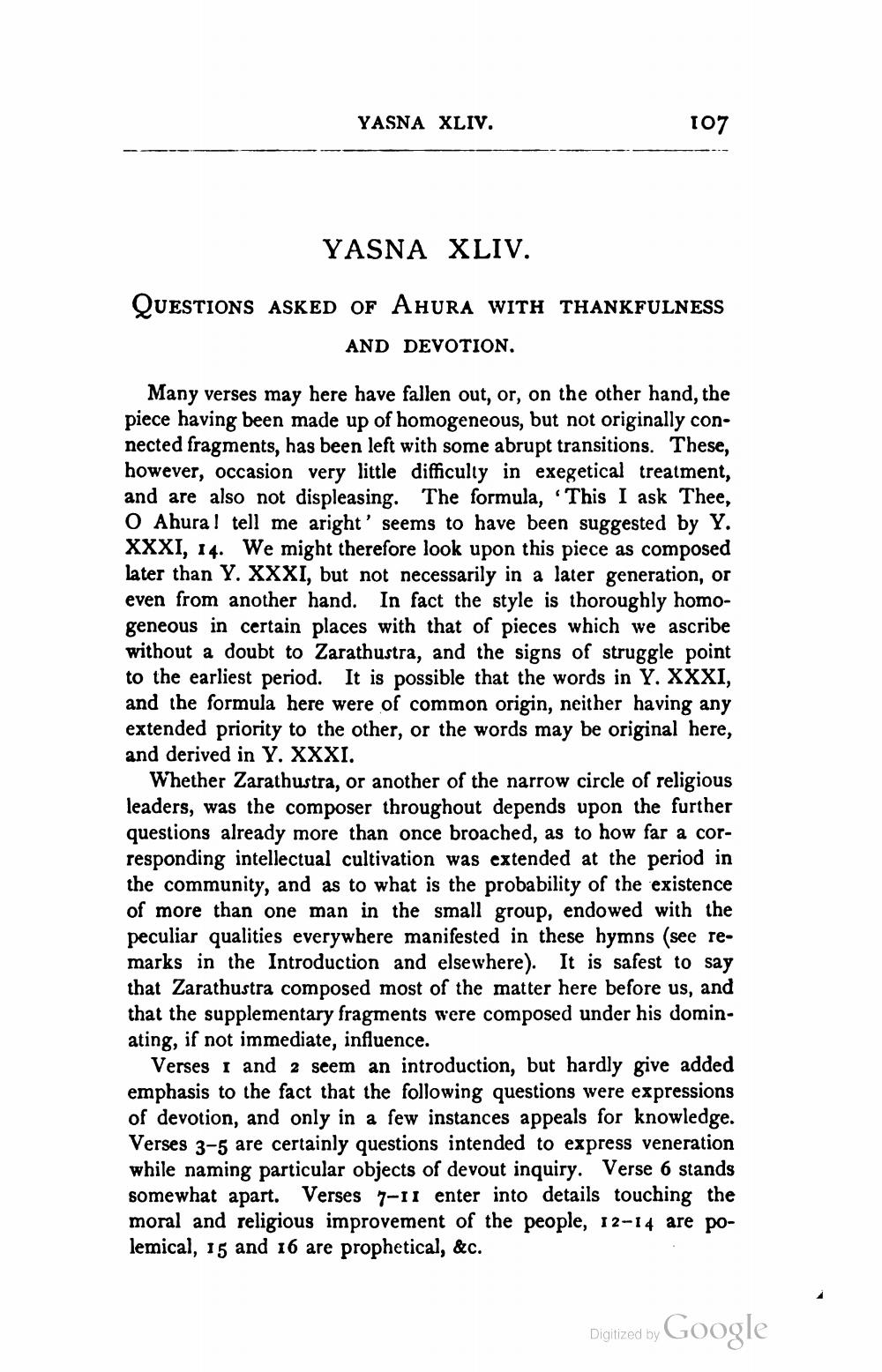________________
YASNA XLIV.
107
YASNA XLIV.
QUESTIONS ASKED OF AHURA WITH THANKFULNESS
AND DEVOTION.
Many verses may here have fallen out, or, on the other hand, the piece having been made up of homogeneous, but not originally connected fragments, has been left with some abrupt transitions. These, however, occasion very little difficulty in exegetical treatment, and are also not displeasing. The formula, This I ask Thee, O Ahural tell me aright' seems to have been suggested by Y. XXXI, 14. We might therefore look upon this piece as composed later than Y. XXXI, but not necessarily in a later generation, or even from another hand. In fact the style is thoroughly homogeneous in certain places with that of pieces which we ascribe without a doubt to Zarathustra, and the signs of struggle point to the earliest period. It is possible that the words in Y. XXXI, and the formula here were of common origin, neither having any extended priority to the other, or the words may be original here, and derived in Y. XXXI.
Whether Zarathustra, or another of the narrow circle of religious leaders, was the composer throughout depends upon the further questions already more than once broached, as to how far a corresponding intellectual cultivation was extended at the period in the community, and as to what is the probability of the existence of more than one man in the small group, endowed with the peculiar qualities everywhere manifested in these hymns (see remarks in the Introduction and elsewhere). It is safest to say that Zarathustra composed most of the matter here before us, and that the supplementary fragments were composed under his dominating, if not immediate, influence.
Verses 1 and 2 seem an introduction, but hardly give added emphasis to the fact that the following questions were expressions of devotion, and only in a few instances appeals for knowledge. Verses 3-5 are certainly questions intended to express veneration while naming particular objects of devout inquiry. Verse 6 stands somewhat apart. Verses 7-11 enter into details touching the moral and religious improvement of the people, 12-14 are polemical, 15 and 16 are prophetical, &c.
Digitized by Google
Digitized by




